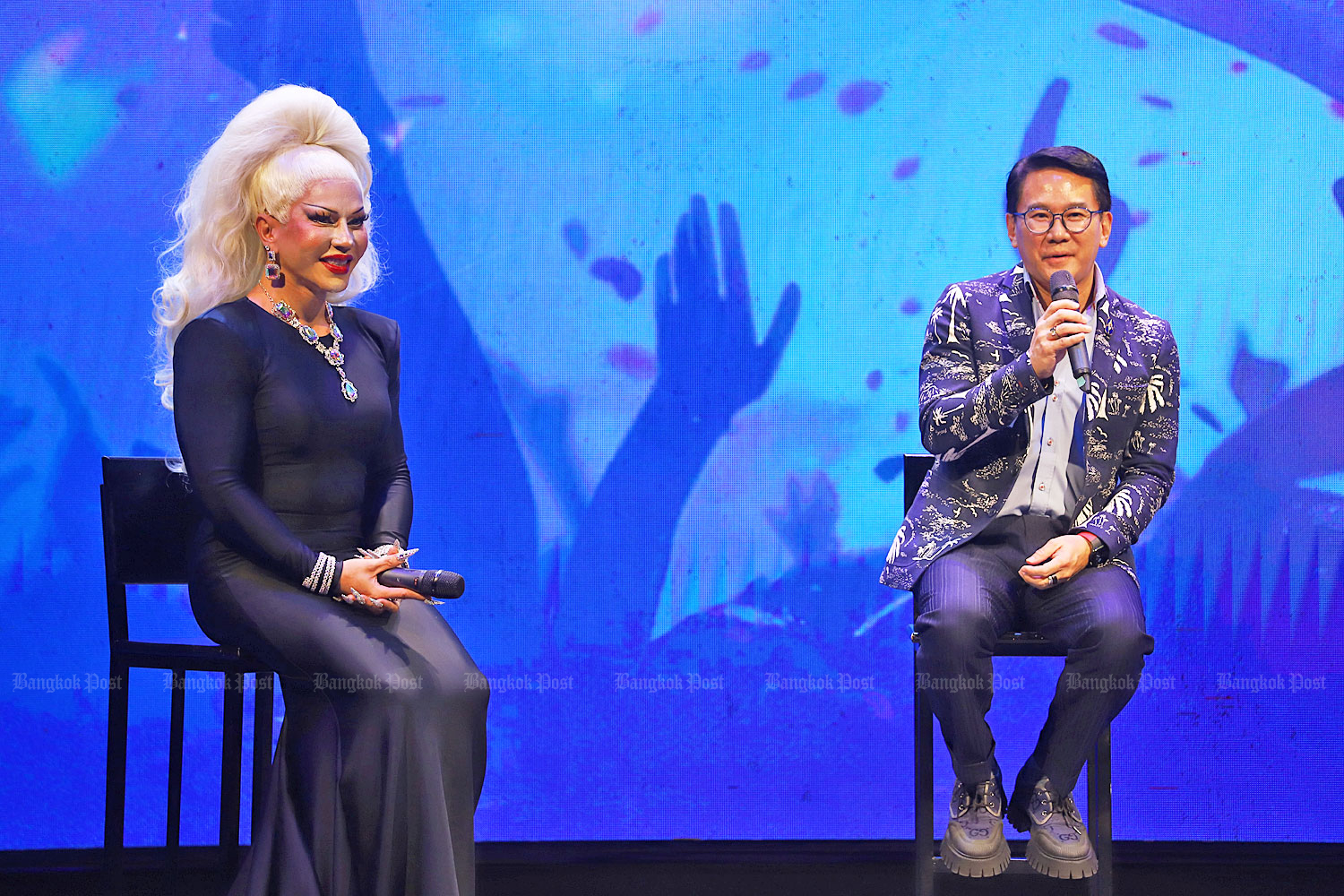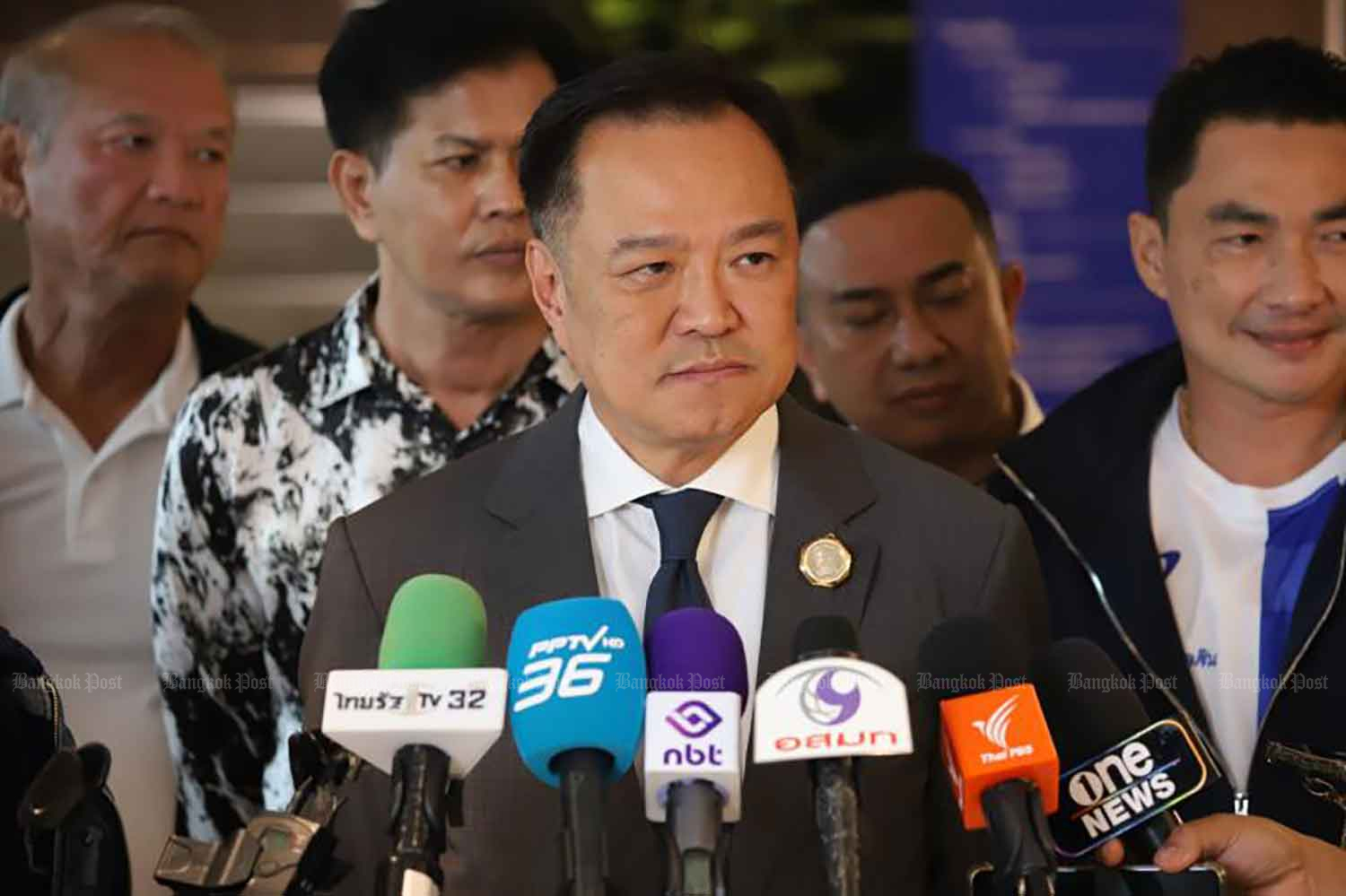In Bangkok, the Pride in Action forum “Pride in Action — Together Now, Together Always” brought LGBTQ+ activists and experts into the spotlight, signaling cautious optimism about advancing LGBTQ+ rights in Thailand and beyond. A key discussion, part of the Bangkok Post Pride 2025 program, highlighted how media, culture, and social attitudes intersect to shape progress. Two notable voices anchored the conversation: Nophasit Thiengtham, vice president and secretary general of the Thai Association of Boys and Girls Love Content, and Sira Siravitch Kamonworawut, a celebrated Madonna impersonator, actor, performer, and content creator. Their remarks underscored a shared belief that Thai society is evolving—enabled by inclusive casting, creative storytelling, and a broader commitment to recognizing LGBTQ+ identities as integral to national culture.
Overview of Pride in Action Forum and Panel
The Bangkok Post Pride 2025 forum convened activists, scholars, media professionals, and cultural figures to examine how LGBTQ+ communities are represented in culture and how these representations influence social realities. The event title, Pride in Action — Together Now, Together Always, signals a call for solidarity and ongoing collaboration across generations and sectors. Throughout the forum, participants emphasized progress in legal and cultural domains while acknowledging ongoing challenges that require sustained momentum, strategic collaboration, and inclusive practices.
Within the program’s broader arc, a panel titled “Scene Stealers: LGBTQ Stories in Culture” stood out for its focus on creative output as a driver of social change. The panel explored how Thai media—drama series, performances, and digital content—portrays LGBTQ+ lives, challenges stigma, and fosters greater acceptance among diverse audiences. The session acted as a focal point for discussing how storytelling can reframe identities, normalize difference, and advance rights in practical terms, from workplace inclusivity to media industry practices.
Participants highlighted the role of Thai content creators in shaping national identity and influencing international perceptions. The forum framed these discussions within Thailand’s evolving legal landscape, including the landmark Marriage Equality Bill passed earlier, and it connected legal rights to everyday cultural experiences. The dialogue also examined how media platforms can serve as safe spaces for performers and audiences alike, underpinning a more open, creative, and inclusive cultural milieu.
In addition to policy and advocacy themes, the forum underscored the economic and cultural value of LGBTQ+ content. It examined audience demand, market dynamics, and international reception as key drivers of production choices and innovative storytelling. Importantly, the discussions acknowledged that cultural visibility can empower marginalized communities while also presenting opportunities for collaboration with global markets. Across the forum, the message was clear: progress is achievable when cultural production, policy reform, and community advocacy reinforce one another, creating a more inclusive public sphere.
Panel Highlights: Scene Stealers—LGBTQ Stories in Culture
The Scene Stealers panel offered a concentrated look at how LGBTQ+ narratives are woven into mainstream media and entertainment, and how these stories advance acceptance while reflecting complex human experiences. Nophasit Thiengtham, who serves as vice president and secretary general of the Thai Association of Boys and Girls Love Content, spoke from his dual perspective as a content producer and actor. He discussed the maturation of Thailand’s LGBTQ+ content landscape since the passage of the Marriage Equality Bill, emphasizing how far the country has come in recognizing diverse identities within popular culture.
Thiengtham has been instrumental in the development of “Series Y” (often termed Y Series), a widely watched Thai television genre that centers on romantic relationships between male characters. This genre builds on the long-standing Japanese traditions of Boy Love and Girl Love, which have long depicted same-sex relationships in manga and anime. In Thailand, these genres have evolved into a robust production line that blends romance, drama, and coming-of-age storytelling to reflect LGBTQ+ experiences more broadly. Thiengtham’s work with Series Y represents a deliberate strategy to weave LGBTQ+ themes into mainstream entertainment, expanding their appeal while maintaining nuanced portrayals of queer life.
A core point in his remarks was that Series Y and related content are helping shape Thailand’s cultural identity by normalizing LGBTQ+ stories in everyday life. He asserted that the genre’s popularity is growing, with audiences embracing LGBTQ+ characters in ways that feel authentic and relatable rather than sensationalized. This shift signals a broader cultural openness, one that could pave the way for greater social acceptance and more inclusive media practices across the industry.
Thiengtham also pointed to the ethical considerations embedded in casting as a hallmark of responsible production. He explained that the casting process does not require actors to reveal their gender, thereby creating a safe space for performers of all gender identities. This approach aligns with a professional ethic in acting where the emphasis is on talent, character interpretation, and performance quality, rather than gender disclosure. He framed this as a core ethical principle of modern acting—respect for every individual and the ability to inhabit diverse roles with integrity.
The impact of Series Y extends beyond national borders. Thiengtham noted that Thai dramas have reached audiences as far afield as South America, underscoring the transnational appeal of Thai LGBTQ+ content. He recalled an instance of audiences in Brazil watching Thai series and forming dedicated fan clubs, a phenomenon that illustrates how soft power can emanate from culturally specific storytelling. This cross-cultural resonance demonstrates that compassionate, well-crafted LGBTQ+ narratives can catalyze global interest and appreciation for Thai media and, more broadly, for Thailand’s cultural landscape.
Thiengtham also described how contemporary Thai productions incorporate LGBTQ+ rights into the entire casting and production process, from script development to performance. He emphasized that the right to representation begins at the casting stage, and that thoughtful casting practices are essential to ensuring authentic, respectful portrayals of LGBTQ+ characters. This comprehensive approach helps reduce stigmatization and demonstrates a commitment to equality and inclusivity within the industry.
Beyond its entertainment value, Thiengtham’s work aims to position Thailand as a global hub for LGBTQ+ content—particularly for two enduring genres: Girl Love and Boy Love. He envisions a future where Thailand serves as a center for high-quality, culturally resonant series that can compete on the global stage, drawing audiences from diverse regions and fostering mutual understanding through shared experiences of love, identity, and resilience.
A complementary voice on the panel, Sira Siravitch Kamonworawut, spoke about the transformative power of drag as art and storytelling. Kamonworawut, a Madonna impersonator, actor, performer, and content creator, framed drag as more than performance; she described it as a conduit for personal and social storytelling. She asserted that “Love is gender-free. Art is gender-free,” underscoring the idea that creativity can transcend conventional categories and celebrate individuality.
Kamonworawut highlighted drag’s capability to illuminate diverse identities. She described drag performances as narratives of becoming—an exploration of the journey to express one’s authentic self despite societal pressures or stereotypes. She acknowledged the challenges faced by Thai drag artists, noting that their talents are sometimes undervalued or misunderstood. Yet she stressed that drag is an art form with significant potential for international recognition, as Thai performers demonstrate technical skill, charisma, and unique storytelling abilities that resonate with global audiences.
Her message to younger generations was one of empowerment and identity reinvention. Kamonworawut articulated a vision for younger LGBTQ+ performers to leverage drag as a vehicle for cultural dialogue, personal growth, and international engagement. By pushing boundaries and showcasing bravery in self-expression, she argued, the younger generation can broaden society’s understanding of gender, sexuality, and artistic possibility.
Together, Thiengtham and Kamonworawut painted a holistic portrait of LGBTQ+ storytelling in contemporary Thai culture. They connected creative risk-taking, ethical practice, and genuine representation with broader social impact. Their perspectives reinforced the idea that culture—in its many forms, including television, live performance, and digital media—can function as a powerful catalyst for progress, challenging stereotypes while expanding the public’s appreciation for LGBTQ+ identities.
Series Y and the Evolution of Thai LGBTQ+ Representation
Series Y stands as a tangible benchmark in Thailand’s evolving approach to LGBTQ+ representation within mainstream media. The genre’s emergence marks a deliberate departure from older, more stigmatized depictions toward contemporary storytelling that centers on romance, emotional complexity, and social relevance. As a successor to the broader Boy Love and Girl Love traditions, Series Y adapts these frameworks to reflect a broader spectrum of experiences, including friendships, mentorship, family dynamics, and the pressures of modern life.
In analyzing Series Y, one can trace a continuum from market-friendly romance to culturally nuanced narratives that explore consent, agency, and intersectionality. The genre’s popularity is not merely a reflection of novelty; it signals a maturation of Thai television and a willingness to engage with LGBTQ+ themes in ways that feel accessible to diverse audiences, including those who might be encountering LGBTQ+ content for the first time. This incremental shift supports greater acceptance by normalizing LGBTQ+ relationships as part of everyday life rather than exceptional or sensationalized stories.
A key aspect of Series Y’s development is its casting philosophy. The emphasis on non-disclosure of gender during auditions helps create professional environments where performers can be evaluated on their acting abilities without the pressure of presenting a predetermined gender presentation. This practice reinforces a culture of merit-based casting, where talent and performance supersede performative labels. It also contributes to safer, more inclusive workplaces that welcome performers across the spectrum of gender identities.
The international reception of Series Y and related Thai LGBTQ+ productions illustrates the global demand for authentic, human-centered storytelling. The mention of Brazilian fan clubs and other international communities reveals a broad appetite for nuanced LGBTQ+ narratives that transcend cultural and linguistic barriers. This global reach underscores how Thai content can function as cultural diplomacy, fostering cross-cultural empathy and shared human experiences. By presenting LGBTQ+ characters with depth and agency, Thai media can contribute to a more inclusive global media landscape.
In pursuing a vision to become a global hub for Girl Love and Boy Love content, Thai creators face both opportunities and challenges. The opportunities include expanding production capacities, accessing international co-financing, and leveraging digital distribution to reach new audiences. The challenges involve maintaining ethical standards, safeguarding performers’ rights, and navigating varying regulatory environments across markets. Nonetheless, the trajectory suggests that Thailand’s media industry can continue to innovate in storytelling while promoting LGBTQ+ rights and recognition on a global scale.
Drag as Art, Identity, and Cultural Dialogue
Sira Siravitch Kamonworawut’s perspective on drag centers on the concept of art that transcends gender boundaries. Her assertion that drag is an art form—an expressive medium for telling stories about identity, self-discovery, and resilience—highlights a broader cultural trend where drag expands the vocabulary of public performance. Kamonworawut’s framing of drag as “the story of being your unique self” positions it as a vehicle for personal empowerment and social commentary.
The discussion around drag also touches on the obstacles faced by performers in Thailand. Kamonworawut acknowledged that the journey to recognition is often difficult and fraught with misperceptions. Yet she remains optimistic about the potential for Thai drag artists to gain international acclaim. This optimism aligns with a growing global interest in drag culture, as evidenced by international audiences’ openness to diverse drag aesthetics and their appreciation for the narrative depth that performers bring to their acts.
Importantly, Kamonworawut emphasized the role of drag in inspiring younger generations to redefine their identities. By presenting celebrated and nuanced portrayals of gender fluidity and self-expression, drag artists can become role models for youths navigating questions of identity, belonging, and community. This kind of cultural mentorship can contribute to a more inclusive and accepting society, reinforcing the message that self-expression is a fundamental human right.
Thailand’s LGBTQ+ Rights Progress and Social Attitudes
The Bangkok Post Pride 2025 forum contextualized LGBTQ+ advocacy within Thailand’s evolving legal and social landscape. The discussion recognized progress since the passage of the Marriage Equality Bill in January, signaling a legal shift toward recognizing same-sex relationships. While legal milestones are important markers, the forum’s tone underscored that social attitudes, cultural norms, and institutional practices must evolve in tandem to translate legal rights into everyday experiences of equality.
Media representations, including Series Y and other LGBTQ+ content, play a crucial role in shaping public understanding of LGBTQ+ people. By portraying LGBTQ+ characters with depth and agency, Thai productions contribute to reducing stigma and fostering empathy among audiences who might have limited exposure to LGBTQ+ communities. The panelists argued that media can normalize LGBTQ+ identities by presenting them as integral to family structures, friendships, and romantic relationships, rather than as anomalies in a heteronormative world.
From a societal perspective, Thailand’s evolving portrayal of LGBTQ+ lives intersects with broader discussions about inclusivity in schools, workplaces, and public institutions. The panelists suggested that cultural products—films, series, performances, and digital media—have the capacity to influence attitudes and behaviors, making it more likely that policy changes will be accompanied by visible shifts in daily life. The continued expansion of LGBTQ+ content, along with ethical casting practices and inclusive storytelling, can reinforce norms of respect, dignity, and equal opportunity.
The concept of “soft power” emerges repeatedly in these conversations. Thailand’s cultural exports—through TV drama, film, theater, and online platforms—offer a path to projecting a more accepting, diverse image on the world stage. The global reception of Thai LGBTQ+ content demonstrates that audiences outside Thailand respond positively when stories are told with authenticity, sensitivity, and creative vigor. This cross-border resonance reinforces the idea that LGBTQ+ progress in Thailand is not merely a domestic issue but a component of cultural diplomacy and international cultural exchange.
The Role of Media in Soft Power and International Reception
Media and entertainment have profound implications for how societies are perceived internationally. The discussions at Pride in Action highlighted how Thai LGBTQ+ content has the potential to build bridges across cultures, contributing to a more nuanced understanding of Thailand’s social fabric. The global fan communities centered around Series Y and related content illustrate a phenomenon in which entertainment can function as soft power—an influential, non-coercive force that shapes attitudes, preferences, and values across borders.
Thai media’s appeal lies in its ability to blend familiar romantic storytelling with culturally specific contexts, offering audiences universality in emotion while also delivering unique cultural perspectives. The cross-cultural appeal of drag performances, LGBTQ+ narratives, and diverse representation demonstrates a broader trend in global media toward inclusivity and plurality. These cultural exchanges can foster mutual respect and shared interests among people from different backgrounds, contributing to international dialogue and collaboration.
From an industry perspective, the growing demand for LGBTQ+ content can stimulate investment in production capacity, talent development, and distribution networks. Producers can leverage this demand to create higher-quality content, invest in skilled crews, and develop local talent with global appeal. However, achieving sustainable growth requires balancing creative risk-taking with ethical practices, safeguarding performers’ rights, and ensuring that representations are responsible and respectful.
The forum also underscored the importance of ethical casting practices as a hallmark of professional integrity. By prioritizing talent and performance over gender disclosure, producers can create inclusive sets where performers feel safe to explore diverse roles. This approach supports a healthier, more creative entertainment ecosystem, where performers of all gender identities can pursue opportunities that align with their abilities and ambitions.
Future Visions: Thailand as a Global Hub for LGBTQ+ Content
Looking ahead, there is a clear ambition to position Thailand as a global hub for Girl Love and Boy Love content. This vision rests on several pillars: continued creative innovation, responsible and inclusive production practices, and strategic partnerships that connect Thai creators with international markets. The aspiration to be a central hub reflects both the artistic strengths of Thai creators and a recognition that Thailand’s cultural industry can contribute to global conversations about love, identity, and community.
To realize this future, several pathways can be pursued. First, robust talent development programs can cultivate a new generation of writers, directors, producers, and performers who bring nuanced LGBTQ+ storytelling to a global audience. Second, the industry can expand collaborations with international streaming platforms and production companies to facilitate co-productions, localization, and distribution that reach diverse regions. Third, regulatory clarity and industry standards can support ethical practices, protect performers, and encourage investment. Fourth, continued investment in creative infrastructure—studios, post-production facilities, and distribution channels—can enhance production quality and competitiveness.
The ongoing dialogue at Pride in Action signals that stakeholders are committed to translating artistic excellence into social impact. By continuing to foreground LGBTQ+ rights in tandem with cultural production, Thailand can demonstrate how a vibrant media ecosystem can contribute to social progress and cultural diplomacy. The broad consensus among participants—ranging from content creators to activists—suggests a shared belief that representation matters, that safe and respectful portrayal benefits audiences and communities, and that collaboration across sectors can accelerate positive change.
Conclusion
The Bangkok Post Pride 2025 forum, highlighted by the Scene Stealers panel, showcased a moment of cautious optimism about LGBTQ+ rights and cultural representation in Thailand. Key voices, including Nophasit Thiengtham and Sira Siravitch Kamonworawut, underscored how media, performance, and activism intersect to shape social attitudes and policy outcomes. The discussion emphasized that the evolution of Series Y and related genres reflects a broader shift toward more authentic, inclusive storytelling that resonates with audiences around the world.
Media plays a pivotal role in advancing LGBTQ+ visibility and rights, not only by entertaining but also by informing public discourse, challenging stereotypes, and fostering empathy across cultures. Thailand’s progress—legal, cultural, and social—benefits from a robust ecosystem where creators, performers, and advocates collaborate to produce content that reflects diverse experiences while pushing for greater equality. The shared aspiration to position Thailand as a global hub for Girl Love and Boy Love content signals a strategic alignment between cultural innovation and social progress, suggesting that artistic ambition can complement and accelerate reforms in the real world.
As this momentum continues, the relationship between entertainment, advocacy, and policy will be essential to sustaining inclusive growth. The forum’s conversations illuminate a path forward: invest in storytelling that honors dignity, expand opportunities for LGBTQ+ creators, uphold ethical standards in casting and production, and recognize the transformative power of media to connect people across borders. In this convergence of culture and rights, Thailand’s LGBTQ+ community stands at the forefront of a broader conversation about identity, resilience, and the universal human longing to be seen, understood, and embraced.



